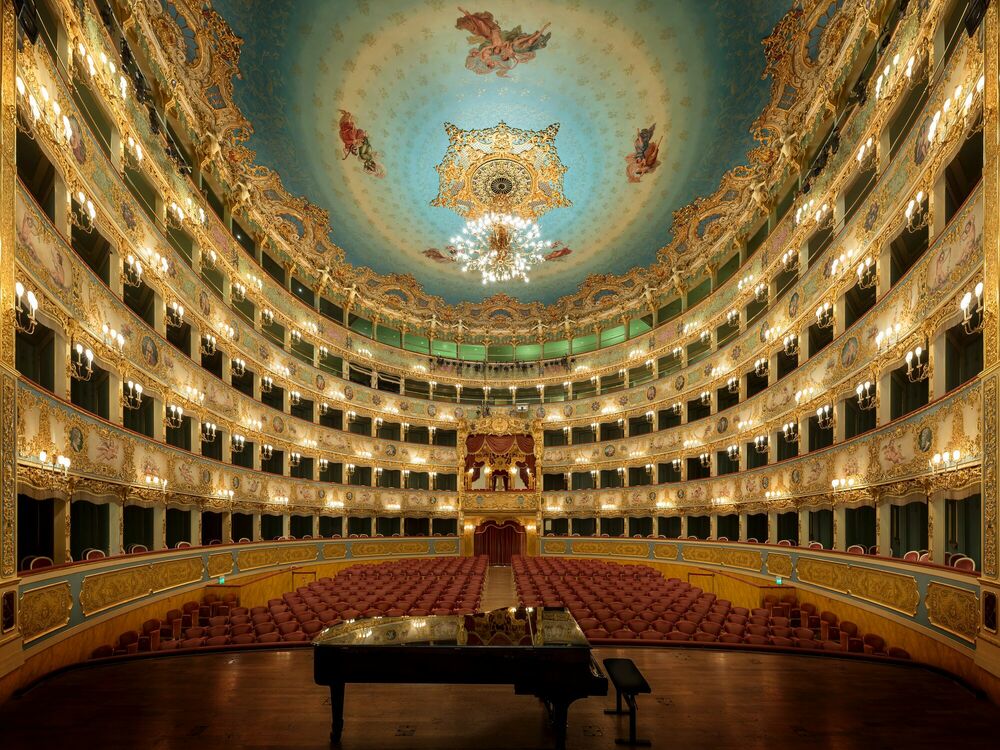La Fenice
From the ashes it became
Top Classical, June 2022
Teatro La Fenice in Venice is considered one of the most beautiful opera houses in Europe.
In 1789 the San Benedetto theatre was destroyed by fire. The Nobile Società di Palchettisti (Noble Association of Box-holders) decided to build a new opera house in Venice. The chosen location for this new opera house was between Contrada Santa Maria Zobenigo and Contrada Sant’Angelo. It would be named ‘La Fenice’, referring to the phoenix, the mythical bird which rises from the ashes.
Giannantonio Selva was the architect in charge of the reconstruction for a neoclassical style building with 174 identical boxes in tiers in a traditional horseshoe shaped auditorium.
Since the opening in 1792, La Fenice has risen twice from its ashes. In 1836, the theatre was destroyed by a fire that destroyed almost everything. Only the foyer and the Apollo rooms were saved. Teatro La Fenice was rebuilt in one year by Giambattista and Tommaso Meduna. In 1996, the theatre was again affected by a fire that burned almost the whole building, while it was closed for maintenance. The facade of the building is the only element which completely survived the two fires.

Many important composers wrote operas specifically for this sumptuous opera house. Examples are Gioachino Rossini with Tancredi (1813) and Semiramide (1823) and Vincenzo Bellini with I Capuleti e i Montecchi (1830) and Beatrice di Tenda (1833). Giuseppe Verdi’s relation with La Fenice started with the premiere of Ernani in 1844. His operas Attila, Rigoletto, La Traviata, and Simon Boccanegra were also performed for the first time in La Fenice. In 1947, Maria Callas made her debut at La Fenice in Richard Wagner’s Tristan and Isolde. Besides operas, many singers and conductors chose La Fenice to premiere their performances. An example is Igor Stravinsky’s The Rake’s Progress in 1951.
Nowadays Teatro La Fenice offers first class operas, concerts and ballets. The latest programmed performances include A Hand of Bridge (Samuel Barber), Il Castello del Principe Barbablù (Béla Bartók), Duse (Alessandra Ferri and the Hamburg Ballett), Rigoletto (Giuseppe Verdi) and L’Elisir d’Amore (Gaetano Donizetti). You can find the entire calendar, including a description, pictures and videos, on the website of Teatro La Fenice: https://www.teatrolafenice.it/
